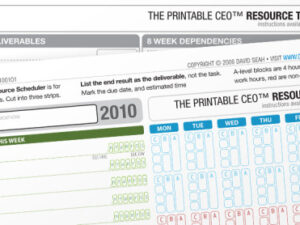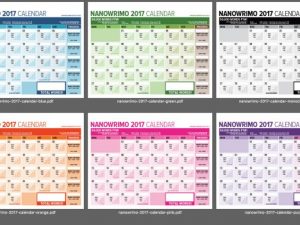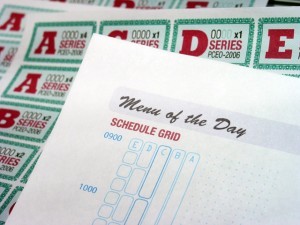(last edited on February 12, 2024 at 9:24 pm)
I haven’t “had time” to blog recently, because I’ve got quite a bit of project work going on. This is great, but it also means that I’ve had to schedule future work farther out. The challenging aspect I’m facing is finishing the work I have now. It’s challenging not because of the technical nature of the work, but because I have had to surpress my normally impulsive side to get stuff done. It’s the impulsive side that actually writes all these blog posts, and I can’t stand holding it in any longer so here I am with another introspective post about my personal productivity. Such as it is.
Insight #1: Re-writing my History of Accomplishment
My blog and the design work I’ve shared through it are the two things I feel most happy about, as far as personal accomplishment is concerned. This is for a combination of reasons: facing the challenge of portraying myself publically and authentically through writing, for sharing my thoughts, feelings and motivations with an (eep!) audience, and for providing the ocassional helpful insight. These are all good character-building things, and connecting with like-minded people through the conduit of blogging has taught me that putting out what you want to get back really does work.
The sheer number of posts has also been encouraging. The blog and continuity of thinking behind my design work is captured right here. This is the biggest thing that I’ve personally made, in terms of words and concentration of ideas. With additional refinement, this raw material could become the basis of interesting books or products, which further creates a basis for growth. If I were the oily sort of PR man, I could spin a tale of purpose and determination about how I set upon this path of growth in 2005, laying brick upon brick of text to build the foundation of success on the work I’ve done on productivity systems design. Blah blah blah! However, this is not how it happened; I had this insight in the shower:
My personal sense of accomplishment comes from capturing unplanned creative impulses in a concrete form.
Which really means:
I still have a long way to go before I do anything on purpose. I am an impulsive creative, not a methodical creative.
A friend of mine, sensing this, turned me onto American dance choreographer Twyla Tharp and her book The Creative Habit. She writes a lot of pretty amazing things about what it takes to be creative on-the-clock; this is something I’ve always struggled with. I tend to need external forces—smart people to collaborate with, clear deadlines and deliverables, an immediate sense of mission—to kickstart my creative process. Then I go until I am exhausted. This isn’t a great way to work, especially since I’m working as a freelancer in my basement office.
I’ve thought that if I could just find the magical combination of workflow tools **, I could get more into a habit of being productive and be relaxed and happy. I know I tend toward impulsive behavior, so creating systems that encourage more paced activity (such as the time boxes in the Emergent Task Planner) have been on my mind lately. However, the realization that I tend toward **impulsive creativity and that my sense of accomplishment has come from merely capturing the output has given me pause.
Taking a step back, the reason why I want to be a more methodical creative is so I can better pace my design work, not have to stay up all night as I do now, and therefore book my working time. The past few weeks I’ve been focusing on limiting my immediate goals, saying no to interesting distractions and projects (oh, how this pains me), and also reducing the lag between when I think ACTION and actually do it. I have made some modest improvements here, but the greatest insight is that it is a struggle to do this by myself.
Maybe I’m shooting myself in the foot though. While my mentality has been do it until it’s a habit, perhaps it’s possible instead to turn those impulses into strengths if I can combine them with the right complementary reagents. The first reagent that worked for me is blogging, which captured all my impulsing writing/thinking into a form that other people could take the time to know. What could the second reagent be?
Here’s a list of things that are practically guaranteed to distract me, unless I have something very powerful focusing me on my work:
- I have an impulsive need to find patterns in everything, driven by intense curiosity to know how things actually work, and how they relate to other things.
I’m fascinated by how people perceive themselves, their peers, and their environment. This is because the way things appear to work is often not how they work, and surprisingly most of the time this doesn’t matter at all. Which gives you some leeway in design.
I have a tremendous empathy for anyone who is trying to empower themselves in some way, technically or emotionally.
I have a powerful desire to simplify and reduce things to the most basic elements and actions through some kind of insightful expression. I like tangible artifacts that can be reviewed and reused later.
<
p>In all the above, I have the ability to generate ideas and plans practically on-the-spot. My great challenge is to take all that creative energy and planning and actually make something, in the methodical business sense.
Insight #2: Get Back to Work
I recently came upon the NOVA special on Dr. Percy Julian, an African-American chemist who, in the racially-charged and discriminatory 50s and 60s, persevered to become a prominent scientist and researcher. It was a fascinating documentary, and because of it I’ve filled in a gap in my pantheon of role models. That he is a chemist, strangely, has a lot to do with it, because in high school I hated chemistry.
Here’s what I didn’t like about chemistry: the sheer amount of memorization and endless laboratory work to verify confusingly-written formulas in horrible textbooks to no readily-discernable gain. However, as I was watching the documentary on Julian’s early work synthesizing an organic compound, it hit me that what he was doing was not unlike what I do with information, programming, or design. The documentary showed clips and stills of Julian and his collaborator laboriously measuring melting points of crystals using an oil-filled bath and a stopwatch to confirm a laboratory result, and it hit me that that I do the same thing when I’m debugging and verifying code. The process of thinking is the same, but the tools and specific methods are different. If I’d had that insight when I was in high school, I probably would have at least known how to frame the context of what the labwork was accomplishing. I might have been able to make up my own research focus, and then be more interested in understanding the drudgery of the labwork. Providing a better context for achievement would have been good too, but I digress.
My second realization was far more applicable to the present:
Progress is made by keeping your head down and pushing, often without a promise of immediate reward, until it is done.
That’s the hard work behind innovation, and it’s something that I have tended to skimp on because I am so susceptable to impulsive creativity. There is an immediate reward, of course (there’s my pattern-finding brain working again): verification of correct process, accomplishment of foundational work that will lead to the eureka moment. The eureka moment might be a “Oh crap, that did not work in a spectacular way” one, but it will certainly tell you something. And then you do it again. Dr. Julian’s impressive lifetime accomplishments were summed up in about 90 minutes. I learned, having the benefit of hindsight on my own journey, that it will take a lifetime to create my own body of work. That’s very cool, and strangely not intimidating because now I know that everything I do has been leading up to it.
Impulsive versus Methodical Implications
I’ve had these two insights before, having applied them to tools like the Concrete Goals Tracker and Task Progress Tracker, but there the emphasis was more on short-term motivation rather than the underlying philosophy of each approach. Having the philosophy in place puts my impulsive side at ease, because I can see viable ways to leverage both.
For example, in my design work I can clearly make a distinction between impulsive and methodical creativity. I would characterize the impulsive side as brainstorming/ideation energy readily on-tap. This is the kind of work that I am most energized by, and it’s best done when I’m presented with a “how would you…” challenge or directing other interested persons face-to-face. The methodical side, by comparison, is more process and research-based. It comes out most when I’m doing engineering-type work, going through the design-to-delivery process, or running a project. I find this work very draining, and need constant sources of input. However, I do know that there is a payoff…if Dr. Julian did it facing the conditions he did, I feel I should give it my best as well.
It’s interesting to note that my energy-generating impulsive side had, until I started blogging, no way of leaving any tangible artifacts, whereas the energy-draining production work did. The blog connected both sides, creating a single engine of creative expression. The next stage of performance tuning is two-fold: optimize the “get to work” side of creativity, and most importantly find the best work for the engine to perform. Some engines are good at constant-speed operation. Others generate lots of power within a certain range, and need additional components to make them more broadly applicable. I’m pretty much stuck with the way I am, so it’s in my best interest to accept that and match myself to the best kind of work.
Ok, now that that’s off my chest, back to work :-)






8 Comments
“The blog connected both sides, creating a single engine of creative expression.”
Awesome. Most of what you hear is about blogging for external gain, such as better publicity or to push more books. I use blogging for personal internal gain by writing down thoughts, insights, opinions, manifestos, or you know, whatever. These “tangible artifacts” are a superb way to document our lives.
——-
Thanks for this David – you have a great ability to articulate methods and processes which I feel effect my daily actions and projects, and make things more concrete and digestible for me. Your guaranteed distractions are fascinating – you’ve really got to the root of the issues, rather than just “emails” or “browsing the net”. Keep up the good work.
Hey David,
I’ve been meaning to write to you for a while…. and this terrific post has triggered my inner Impulsive Creator. ;-)
A couple of quick thoughts for you….
(1) I am an Evangelist for your Emergent Task Planner, especially the latest version with the gentle coaching included right on the form. I first discovered the ETP in November and I am still delighted with it every day. (I have never ever ever stuck that long with any kind of day planner, so I thank you.)
(2) Have you ever wondered if you might be demonstrating some of the brain characteristics that are usually diagnosed in our culture as ADD?
I have just discovered that about myself and it has been life-changing. I have zero interest in taking drugs to “manage” the condition, but am having a lot of fun discovering new ADD-friendly ways of operating.
Have a look at the diagnostic quiz in “Delivered from Distraction.” The author is himself an ADD-er, but yet is astonishingly productive. The quiz made me laugh out loud. (It explained a lot!)
(3) Another of the books on ADD I read last month (whose name escapes me) showed photos of “normal” brain activity compared with, shall we say, “struggling” brains. Quite eye-opening.
(4) You might also enjoy “Time Management for Unmanageable People” (first published in 1993).
Although I have a slew of books on productivity/organization/time management, this is the one I return to again and again.
When I dipped into it again recently, I noticed for the first time that the author, Ann Mcgee-Cooper has ADD….
Cheers, David!
Sheila
Weighing the conflict between “creative impulse” and “methodical action” will always be an agonizing process.
The inherent risk is that by increasing the methodical, organization required to keep clients profoundly happy, and bank accounts positive, creative impulse gets depleted.
Maybe this conflict is the muse behind web 2.0 being essentially an inspiration collaborative.
Thank you for getting me to think and question myself again. I fear I have been losing ground on that slippery slope towards corporate style routine.
Excellent post David, just what I needed to read right now.
I see a lot of myself in this post. I’m very much an idea guy myself, and I easily get bored doing the actual work—especially when I’ve already completely figured out the “how.” For instance, I’m just now finishing up a very big project, and the “planning” and the initial “doing” stages were very energizing to me. However, once I had done enough that I was just repeating the same sort of actions over and over with hardly any new “figuring out” left, I lost a lot of interest.
Dave, maybe this means that we’re more cut out to be managers: to make plans, to work hard getting them off the ground, and then merely to oversee the implementation while other people use the systems we’ve devised to do the repetitive, boring stuff.
David,
Wow, thank you for this great post.
David!
While I was reading this, I was reminded of a teacher of mine. He was a musician, who was well known and prolific. He told me that the way that most musicians worked putting together a huge mono-themed album never worked for him. What did, and this is what reminds me of your technique, is whenever he had a song, he’d record it. Eventually, he’d have enough songs of the same genre to make an album/CD/whatever. Maybe he’d need to write just one more to round it out, but it seems like a similar process to yours. It also has the advantage of his never censoring himself because a song doesn’t fit into an existing project.
Perhaps you have a few books in here. . .